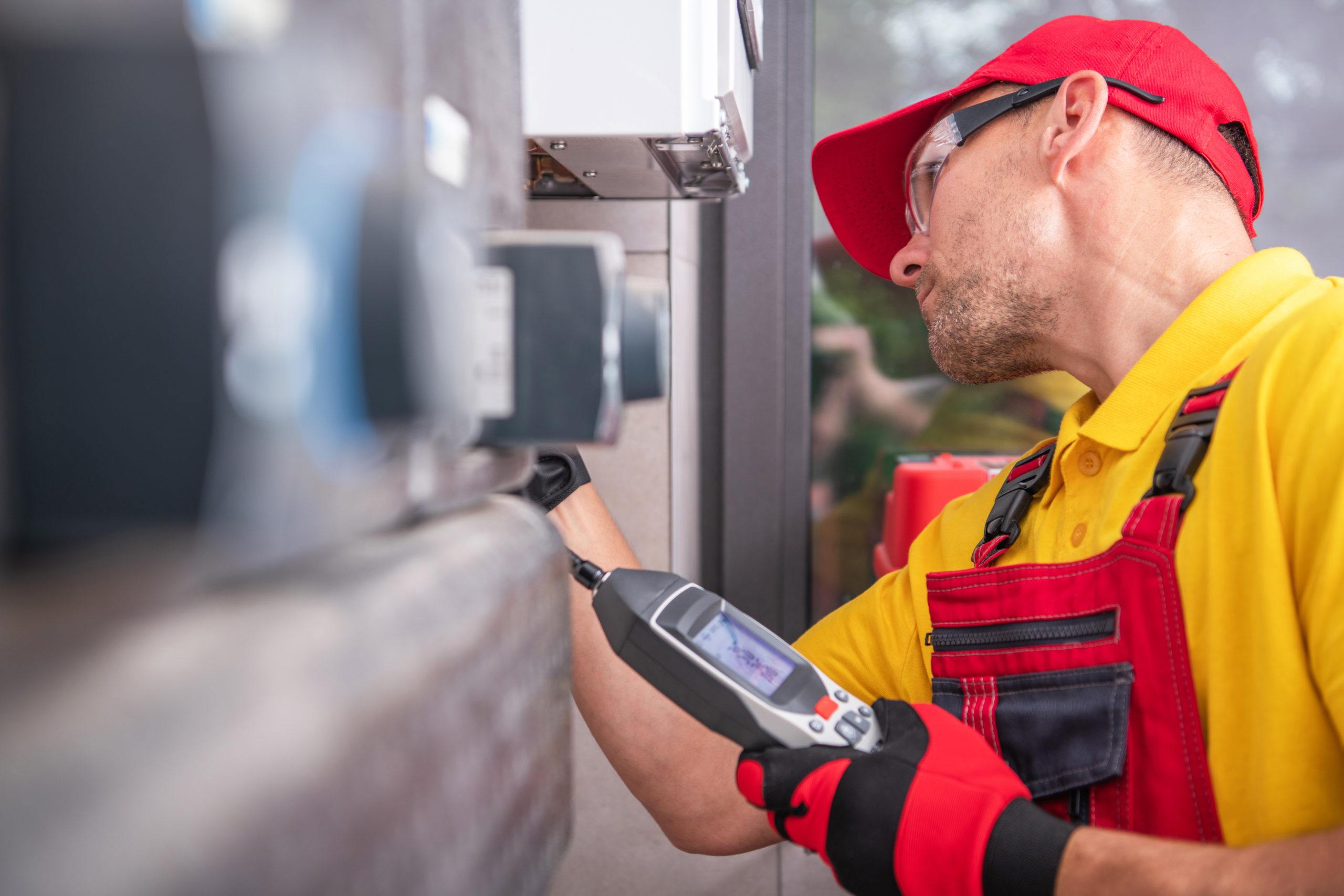According to the American Gas Association, more than 76 million natural gas customers are currently in the United States. That includes residential customers who depend on natural gas for cooking, heating, and hot water. If you have a gas kitchen range, chances are your water heater, furnace, and clothes dryer are all gas-powered.
While natural gas is a valuable resource, it can also be dangerous if not properly contained. A natural gas leak from an outdoor pipeline or gas appliance can occur quickly and unexpectedly. Any malfunctioning gas line or gas-powered appliance requires immediate attention.
Although rare, leaks in a gas line can result in carbon monoxide poisoning and other potentially dangerous natural gas buildups. Gas leaks can originate from various sources, so homeowners need to learn to recognize the signs of a potential gas leak.
Commons Warning Signs of a Gas Leak
1. Rotten Egg Odor
Local utility companies add a chemical to natural gas designed to give it a distinctive odor. If you notice the smell of sulfur or rotten eggs, this is an indicator of a gas leak. Immediately evacuate all people and pets and call the gas company.
2. Hissing Noises
If gas is escaping through a tiny crack in the line, you may be able to hear a slight hissing sound as it exits and enters the air in your home. If you hear any unusual sounds coming from a gas line or gas-powered appliance, shut off the gas to your home if possible, evacuate, and call for help.
3. Rust or Corrosion
The gas lines connected to your home have a limited lifespan. Moisture shouldn’t be able to make its way onto the gas line in your home. If it does, it can lead to rust or corrosion, compromising the integrity of the line. Regularly inspect exposed gas lines for signs of rust or corrosion.
4. Dead or Dying Vegetation
If an underground gas line cracks, gas will be released into the air and absorb oxygen. Without a sufficient supply of oxygen, the grass and other surrounding vegetation will begin to die. If you notice an unusual patch of dying grass in your yard, it could signify an underground leak.
5. Loose Connections or Malfunctioning Appliances
As your appliances and home age, gas line connections can become loose. If you smell gas around a furnace, clothes dryer, or any other gas-powered appliance, contact a gas appliance repair service for immediate repair. If you have trouble with just one of your gas appliances, then it might just be a problem with that appliance. If multiple appliances malfunction simultaneously, it could be because of a more severe gas line problem.
What to Do If You Suspect a Gas Leak
Gas leaks are serious and require immediate action to protect yourself and your family. If you suspect there’s a gas leak in your home or on your property, follow these steps:
- Evacuate - Immediately evacuate all family members and pets. Be sure to leave the door open when leaving your home.
- Call 911 - Once you have safely evacuated, call 911, your local fire department, or your utility company’s emergency number for immediate assistance. Do not make any phone calls from inside your home to avoid igniting the gas.
- Wait - Do not return to your home until a certified inspector has located and repaired the gas leak. Only after a professional has notified you that it is safe should you return to your home. Once you’re allowed to return, thoroughly air out the house.
Gas Leak Prevention Tips
Install Carbon Monoxide Detectors
If you haven’t done so already, install carbon monoxide detectors outside of bedroom doors to alert you of any potential gas leaks.
Schedule Regular HVAC System Maintenance
Have a licensed technician check your furnace each time the seasons change. This inspection should include inspections for gas or carbon monoxide leaks.
Call 811 Before You Dig
A surprising number of gas leaks occur because of careless digging in and around yards. Contact the Call Before You Dig site for information before beginning any projects that might disturb underground utility lines.
Install an Earthquake Shut-Off Valve
In the event of seismic activity, you can keep your home protected with an earthquake shut-off valve. Your gas lines could potentially be damaged during an earthquake, leading to gas leaks, explosions, or fires. An earthquake gas shut-off valve is a switch that automatically reacts to seismic activity and stops gas flow.
Reasons to Replace a Gas Line

Properly installed gas lines will work efficiently and safely for many years. However, there are a few reasons why homeowners need to have them replaced, including:
- New construction or remodeling projects
- Switching from oil to gas or propane
- Upgrading gas appliances or furnaces
- Old or damaged pipes
Homeowners are often surprised to learn that many plumbers are qualified to install and repair gas lines. Master plumbers have the training and experience to work with both water and gas lines. Their skills include installing and repairing gas water heaters, running new gas lines for appliances, and adding new gas lines for additions or remodeling projects.
Trust the Local Experts for Gas Line Service
Ensuring your household appliances and pipelines are in good condition is the best way to prevent dangerous gas leaks. Simply Green Plumbing, Sewer & Rooter’s team of experienced technicians can inspect your gas lines and gas-powered appliances for signs of leaks, ruptures, or other problems.
The professionals at Simply Green Plumbing, Sewer & Rooter have the training and experience to handle all of your plumbing needs. Call us at (408) 716-1686 or contact us online to schedule an appointment.
Our technicians have over 30 years of plumbing experience. We understand that plumbing emergencies can happen at any time - that’s why we offer emergency plumbing services at no extra cost.
